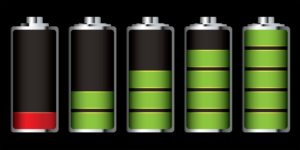 Ofgem is mulling a proposal by Scottish Power to further derate demand-side response (DSR) within the Capacity Market (CM) where it uses behind the meter storage – and possibly to derate DSR more broadly.
Ofgem is mulling a proposal by Scottish Power to further derate demand-side response (DSR) within the Capacity Market (CM) where it uses behind the meter storage – and possibly to derate DSR more broadly.
Aggregators are not keen.
The big six firm submitted the proposal last week, too late for the latest round of rule changes that Ofgem plans to take forward, published yesterday.
However, the regulator said it would think about the suggestion with a view to indicating its decision in 2019.
Scottish Power wants DSR that uses batteries behind the meter to be subject to the same deratings for batteries classified as generating units within the CM.
Those batteries, following an earlier proposal from Scottish Power, receive a percentage of the full auction outturn depending on how long they can produce power: A battery that can produce for 30 minutes receives around a fifth of the full amount while a battery that can delivery for four hours receives 96%.
Scottish Power would like the same rules to apply to DSR that uses batteries. It believes leaving things as they stand creates a risk of capacity shortfalls and increased cost to consumers.
Scottish Power suggests creating new “DSR Technology Classes, in particular Storage DSR,” which it says “would obligate the EMR Delivery Body to consult on the derating factor to apply to the new Classes”.
Ultimately, Scottish Power says that as “some other forms of DSR may have duration limits … in due course derating and appropriate testing should be extended to all applicable DSR technologies”.
Aggregators have questioned the logic of the proposal, particularly extending it across DSR.
Wrong

“There is always value in having different ways of classifying technologies, but when it comes to figuring out the right classification of embedded plant, a vertically integrated big six player is absolutely the wrong company to figure out what that should be,” said Alastair Martin, chef strategy officer at Flexitricity.
Martin suggested any firm pushing such a line might have a hard time justifying extending derating to all applicable DSR technologies to some of its customers, particularly a supplier that was trying to enter the DSR market.
He also highlighted that the reason a lot of DSR providers deliver for 30-minute durations is, “because they are under a contract that specifies exactly 30 minutes. So if they are delivering for that duration, it is because National Grid has asked them to do that”, he said.
“But there is huge variety within DSR and most forms can actually deliver for quite a long time”.
Odd
Graham Oakes, chief scientist at Upside Energy, said the derating discussion was “kind of odd”.

“Scottish Power’s proposal itself contains the fundamental problem — it tries to maintain the ‘CM policy of technology neutrality’ by creating yet another technology class. You can’t create a technology neutral market by subdividing it into a bunch of technology classes each with different rules — technology moves too fast for that, with new options that span boundaries constantly emerging,” said Oakes. “You end up playing whack-a-mole.”
He said the energy system is not particularly good at specifying requirements.
“It tends to look at what technology can currently do and base its specifications on that. Hence the capacity market, and much else, is driven largely by what traditional, large generation can do. People try to overlay elements of new technologies onto this, but the underlying bias remains and you end up constantly playing catch up.”
Oakes believes a better solution would be “to define requirements based purely on the ability to shift power levels against a defined baseline and then pay in proportion to power shift and length of time you can shift it for, regardless of technology type”.
He said the problem, however, is that defining a baseline for DSR would be complex, as it would require some forecasting of what demand would have been had there not been an event.
“But let’s address this problem head on, rather than try to fudge it via derating factors,” said Oakes.
“Once we’ve done this, behind the meter DSR will compete very favourably, especially large numbers of small assets, as they can be configured to trade off power shift versus length of response very flexibly.
“DSR should be rewarded for this flexibility,” he said. “But the focus on derating factors is causing us to lose sight of this value.”

Sebastian Blake, commercial manager at Open Energi, said any broader derating decision must be made with a proper understanding of distributed demand-side response.
“Applying the correct derating factor is important, but one of the strengths of DSR is it encompasses a broad range of distributed assets,” he said.
“Any new CM rules must recognise the different characteristics and capabilities of these assets.”
Misguided
Paul Troughton, senior director of regulatory affairs at Enernoc, suggested that while the original proposal to derate standalone battery storage had “merit”, this latest idea is misguided.
“Scottish Power seems to be concerned that battery project developers might switch to building batteries behind-the-meter so as to avoid the harsh derating applied to standalone batteries,” he said.

“There was merit in tackling standalone batteries because of the potential for huge numbers of them to be built and financed by 15-year Capacity Market contracts. But there’s no potential for a sudden influx of behind-the-meter batteries, because a one-year Capacity Market contract is no help whatsoever in financing them. So this is neither a major nor urgent issue.”
Troughton said the proposal also “ignores the fact that behind-the-meter batteries are complementary, not standalone, to flexible demand”.
“Derating short-duration standalone batteries made sense; they can only discharge at their derated output for a limited time after which point they cannot contribute to alleviating system stress. On the other hand, a behind-the-meter battery shouldn’t be subject to a harsher derating factor if it is combined with flexible loads to form a reliable aggregated resource,” said Troughton.
“What matters is the performance of the aggregated resource.”
Troughton agreed with Flexitricity’s Alastair Martin that perceiving DSR as a time-limited resource is misguided.
“Turn-down DSR is very different to battery storage. There is no hard cut-off time for an aggregated DSR resource to stop responding. Some customers have limits, but very few of those are hard limits. Rather, it’s that their opportunity cost will rise steeply if dispatches are too long or frequent,” said Troughton.
“It’s the aggregator’s job to assemble a portfolio which allows them to deliver reliable response when the system needs it, while minimising costs.”
See Scottish Power’s proposal here.
See Ofgem’s consultation on rule changes here.
Related stories:
Ofgem outlines changes to Capacity Market rules
Aurora: Bring unsubsidised renewables into capacity market to save money
Capacity market outtturn a turn off for batteries
T-4 capacity market clears at £8.40, lowest yet
T-1 capacity market auction clears at £6/kW
Medium Combustion Plant Directive takes back-up generators out of DSR
Battery storage cut down to size as gigawatts qualify for capacity market
Half of small generators ‘could give up capacity market contracts’ after Triad cuts
Businesses ‘shutting down from 4-7pm due to peak power costs
Capacity market ‘buying the wrong stuff because it’s joined up with nothing’
Follow us at @EnergystMedia. For regular bulletins, sign up for the free newsletter.



